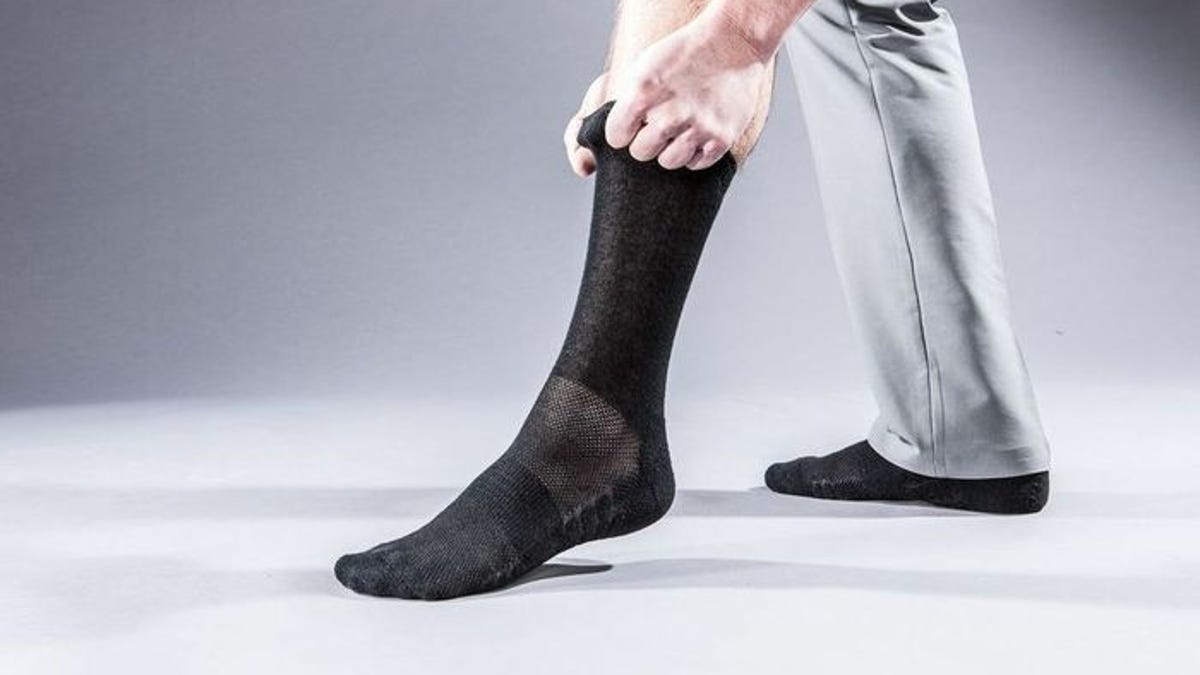MIT startup offers highly engineered dress socks
Humble dress socks get a high-tech overhaul thanks to advanced engineering and 3D knitting processes.

It sounds like the start of a joke: "A group of MIT people walk into a sock factory..." But the punch line is a pair of socks that have been so thoroughly engineered, they make tube socks look like something a triceratops would have worn back in the Cretaceous Period.
MIT startup Ministry of Supply has turned its plentiful resource of engineering and high-tech minds to the problem of dress socks. The result is the Atlas performance dress socks Kickstarter project, which has already more than doubled its $30,000 funding goal. There is good reason for this outpouring of sock support.
"Dress socks to date have been one of the most overlooked items of man's wardrobe in terms of innovation, but a source of incredible discomfort. We sought to rethink how we design and make dress socks, starting with an understanding of how the human body works," Ministry of Supply's Derek Switaj told CNET.
The young company has taken an approach to socks that feels more like that of an auto company creating a new car. The fibers are infused with carbonized coffee to prevent odor. Strain analysis was used to map out stress points. Pressure mapping and thermal imaging guided the placement of cushioning and ventilation.
"Our engineering analysis revealed how the skin of the foot moves so we could create a sock that moves in the same way, leading to loafer socks that don't flip under your heel, and a more comfortable stride," says Switaj.
The biggest challenge Ministry of Supply has faced is finding a facility that can handle production. "Technically, simply translating our design to a product has been difficult, we had to find one of the most advanced 3D computerized knitting facilities to execute our equally advanced design with the precision we needed," says Switaj. The 3D knitting process is like a fabric version of 3D printers.
Two pairs of Atlas socks cost a pledge of $28. Ultimately, the proof of whether these socks work will happen once customers receive them and put them through the rigors of the work week. The humble world of socks may never be the same again.

